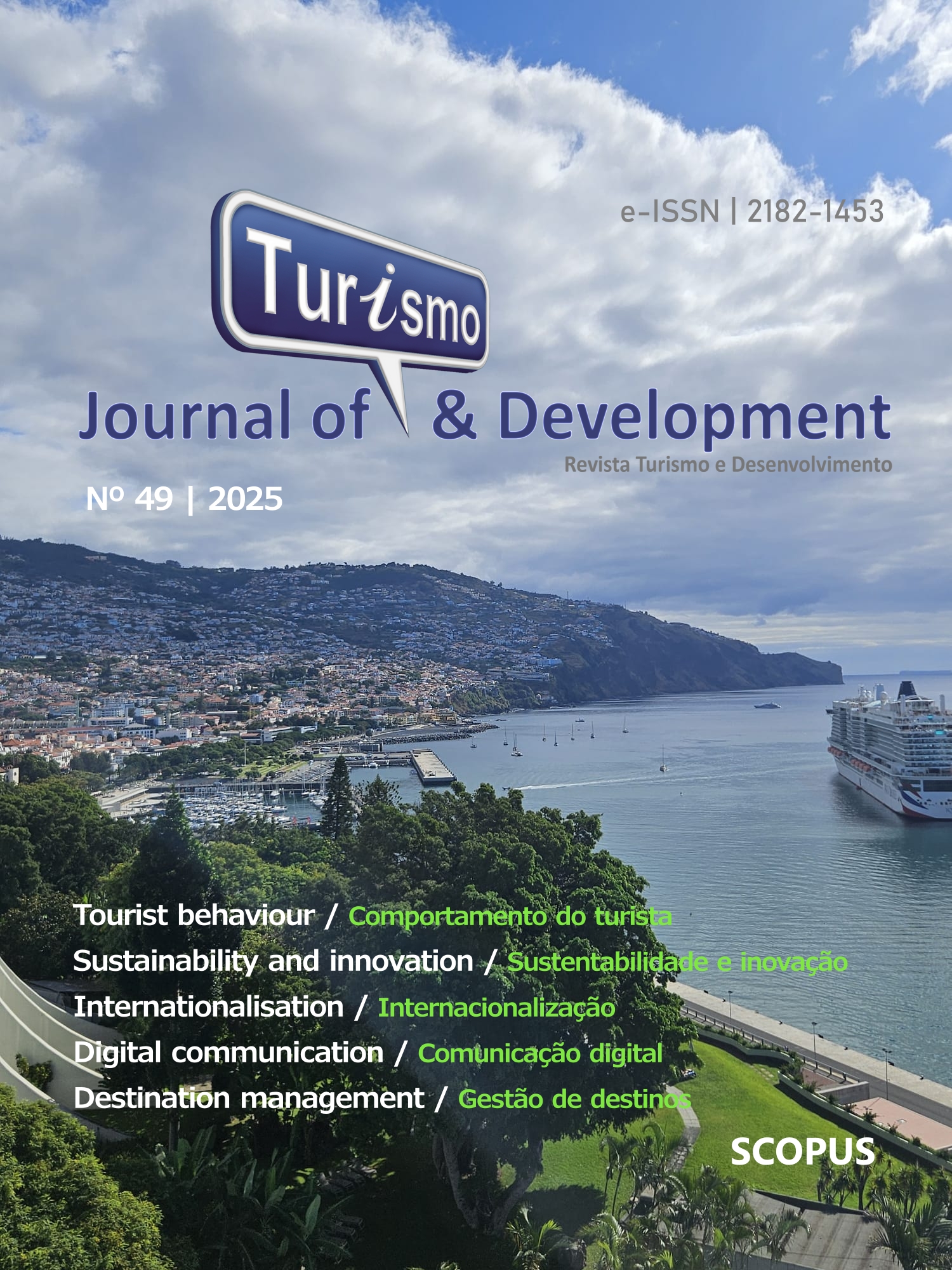Determinants of tourist intentions to use mobile applications for accommodation booking
Insights from Ho Chi Minh City
Resumo
The present study examines the factors influencing tourists' intentions to book accommodation in Ho Chi Minh City, using mobile applications. It addresses various purchasing behaviours on platforms such as Airbnb, Agoda, and Booking.com. The findings offer strategic insights for policymakers and industry stakeholders aiming to enhance app adoption among hoteliers. Grounded in the Technology Acceptance Model (TAM) framework, this study expands the model by incorporating social influence, pricing strategies, payment systems, and security perceptions to reflect the complexities of mobile booking behaviours. Data were collected through face-to-face questionnaires distributed to 332 domestic tourists between January and March 2024 and analysed using SPSS version 26. The study identifies key factors affecting usage intentions, with social influence emerging as the strongest predictor (β = 0.313), followed by perceived ease of use (β = 0.250) and perceived usefulness (β = 0.203). The regression model explains approximately 55.2% of the variance in usage intention, highlighting the critical role of these determinants in mobile app adoption. This research contextualises TAM within a culturally specific setting, sizing the interplay of trust in digital platforms and social norms. The findings enhance the understanding of mobile app adoption behaviour in Ho Chi Minh City and similar environments.
Keywords | mobile accommodation booking, Technology Acceptance Model (TAM), social influence, pricing strategies, payment systems, security perceptions





